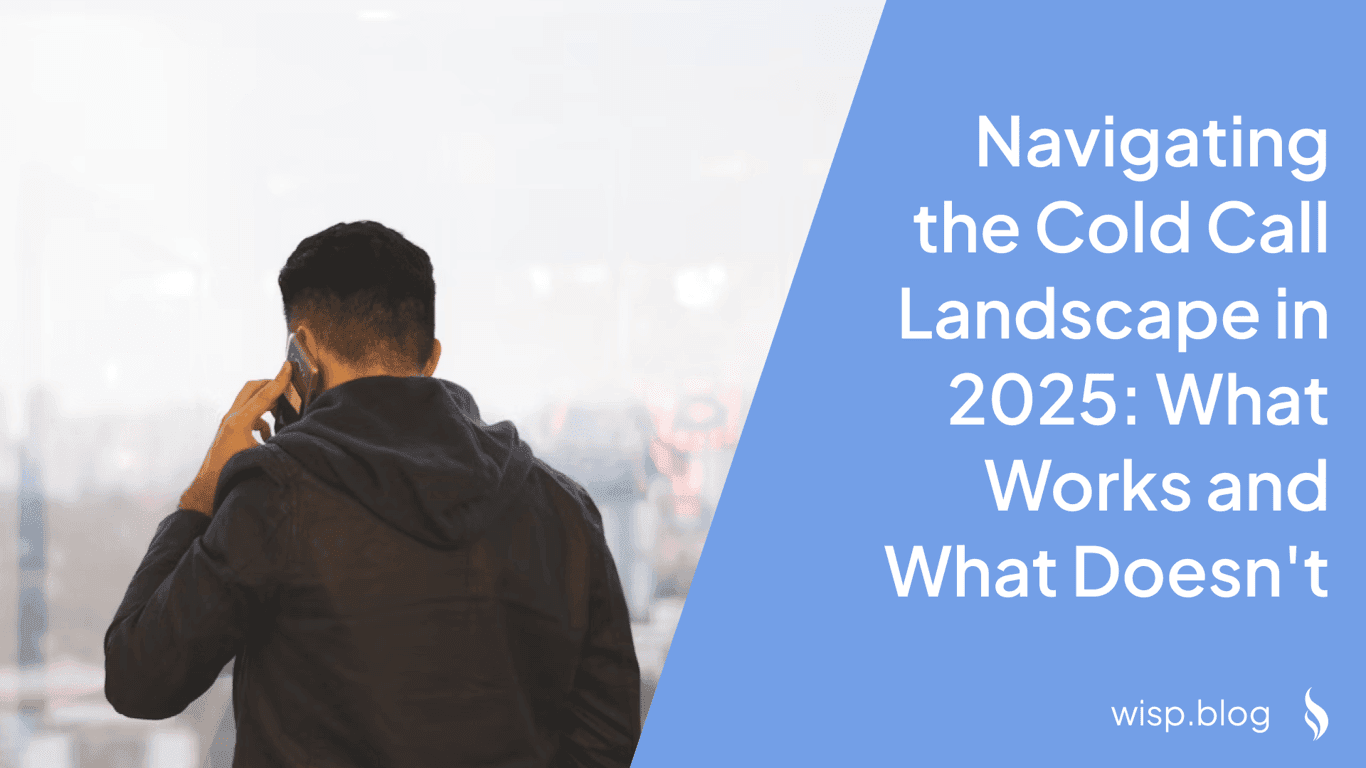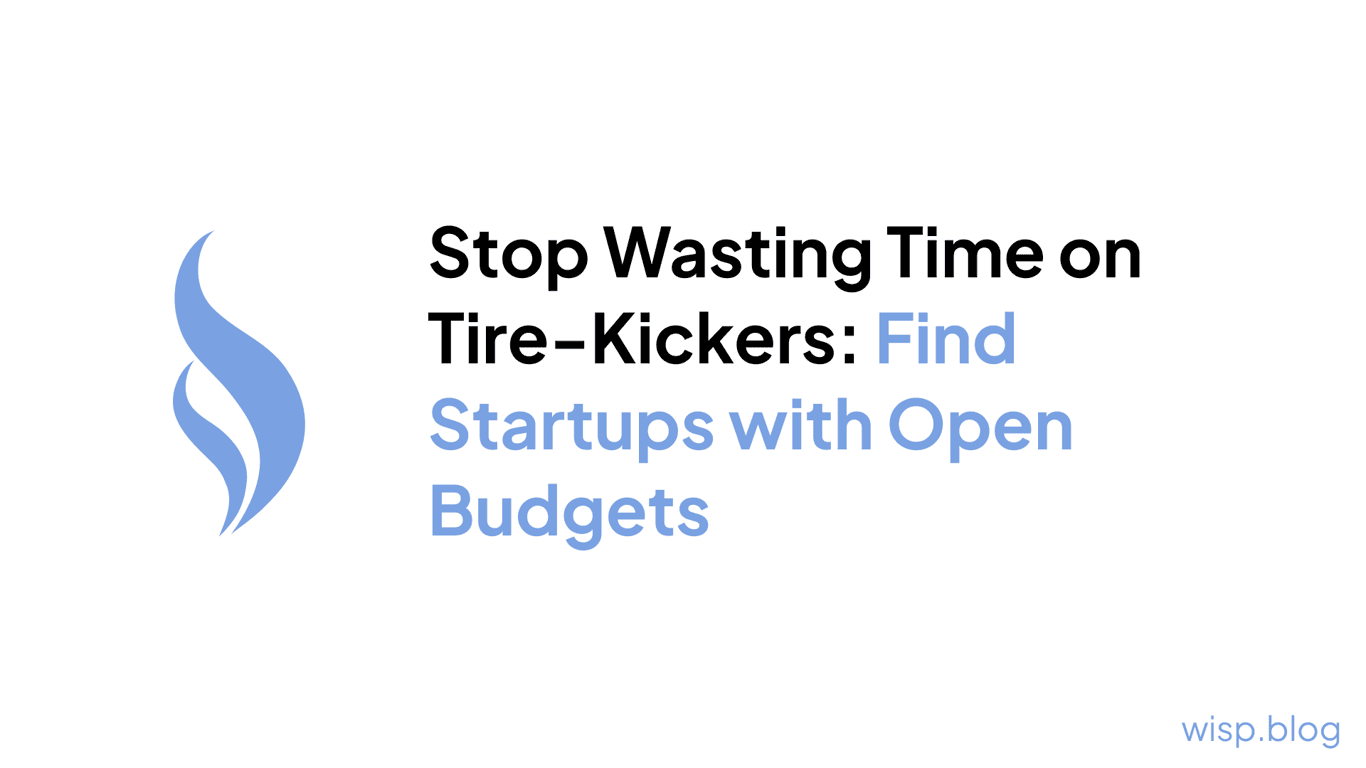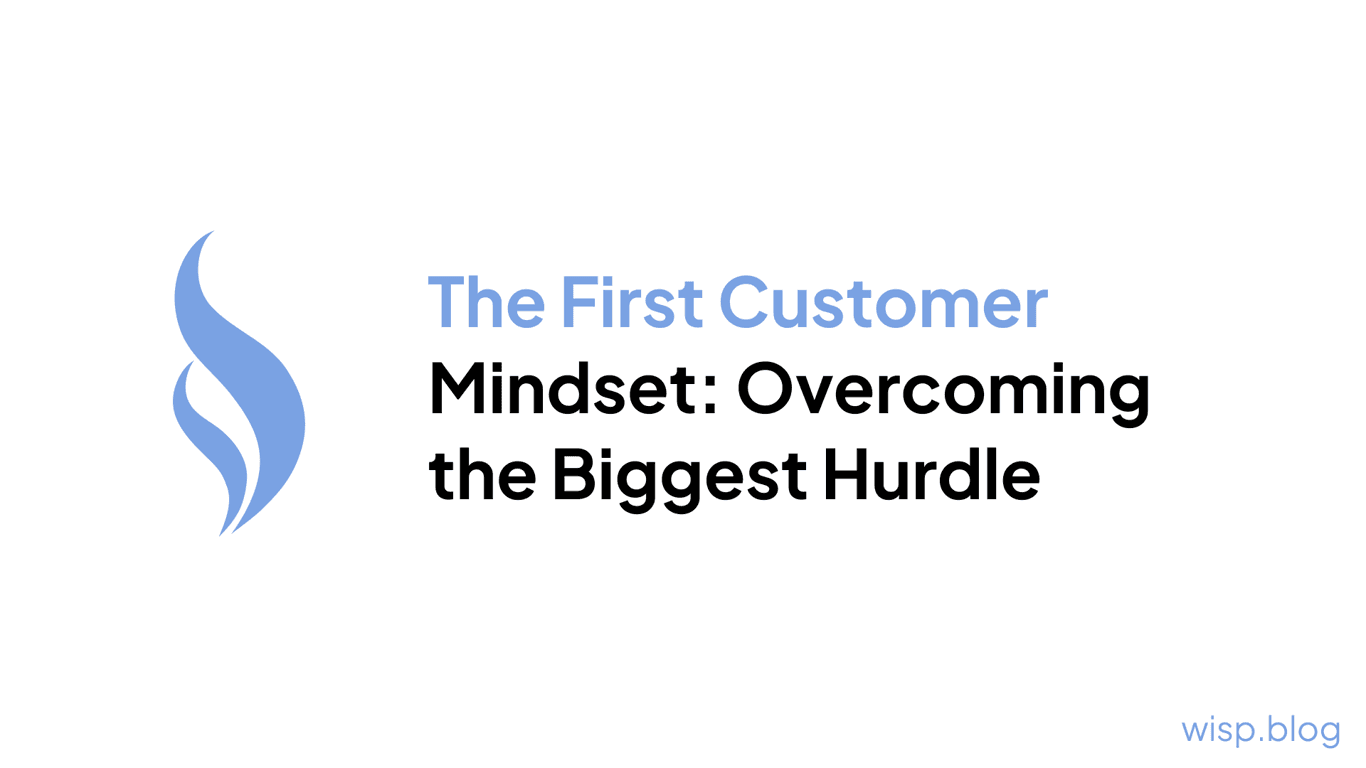 You've crafted the perfect cold email, checked it twice for grammar errors, and hit send to hundreds of potential clients. Your analytics show impressive open rates of 40-70%, but the responses? Just four messages asking you to stop emailing them. The silence is deafening, and after weeks of going way outside your comfort zone, you have nothing to show for it.
You've crafted the perfect cold email, checked it twice for grammar errors, and hit send to hundreds of potential clients. Your analytics show impressive open rates of 40-70%, but the responses? Just four messages asking you to stop emailing them. The silence is deafening, and after weeks of going way outside your comfort zone, you have nothing to show for it.
Sound familiar?
Many founders find themselves in this exact position—spending months building products for nobody in particular, then struggling to initiate customer conversations when they finally reach out. As one founder put it, "It's starting to feel personal."
But here's the truth: it's not personal. It's just that your cold outreach strategy needs revitalization.
Why Traditional Cold Outreach Is Failing
The digital landscape has dramatically shifted. With GenAI tools flooding the market, prospects now receive dozens of templated cold emails daily. Even personalization is taking a hit, as one agency owner noted: "With AI-driven outreach tools flooding the market, it feels like personalization is taking a hit, and prospects are tuning out."
This saturation creates a paradox: higher visibility through technology but dramatically lower engagement. Your prospects aren't responding not because they dislike you or your idea—they're simply overwhelmed and have developed sophisticated filtering mechanisms.
The Mindset Shift: They Owe You Nothing
Before diving into tactics, embrace this fundamental truth: "What many founders forget is that you are providing a service and a product, the customer owes you nothing till they buy/hire you."
This perspective shift is critical. Your prospects are busy professionals with their own priorities, challenges, and limited attention spans. Your job isn't to "get them to talk to you"—it's to provide so much value upfront that they actively want to engage.
Reviving Your Cold Outreach: Actionable Strategies
1. Build Rapport Before Reaching Out
One of the most effective yet underutilized strategies is engaging with potential customers on their turf before formal outreach.
"If you're doing reach out on LinkedIn or Twitter, interact with their content for about a week," recommends a successful founder. This pre-outreach warming creates recognition when you finally send that email or make that call.
How to implement this:
Set aside 15 minutes daily to meaningfully engage with target prospects' content
Comment with thoughtful insights rather than generic praise
Share their relevant content with your own perspective added
Build a consistent presence in their digital world
2. Personalize Beyond Mail Merge Fields
True personalization goes far beyond "{First_Name}" and company details. It demonstrates you've done your homework and understand their specific challenges.
Try these approaches:
Reference recent company news or achievements: "Congratulations on your recent Series B funding round—scaling operations while maintaining customer satisfaction must be a priority now."
Mention specific content they've created: "Your LinkedIn article about implementing AI workflows resonated with me, particularly your point about balancing automation with human oversight."
Connect to their professional journey: "Having transitioned from FAANG to founding your own SMB, you've likely experienced the challenges of resource constraints firsthand."
3. Offer Value Before Asking
The most successful cold outreach provides immediate value rather than immediate requests.
As one founder reflected, "When we looked back on relatively successful customer interactions, offering value before asking for a call was almost always the case."
Value-first approaches:
Share a relevant case study featuring similar companies
Provide a free high-level audit of their current solution
Offer access to exclusive research or data relevant to their challenges
Send a helpful resource that addresses a pain point they've publicly mentioned
4. Create Memorable First Impressions
In a sea of digital noise, sometimes the analog approach creates the strongest impact.
"Bring in some donuts and company swag to sprinkle on them, which is typically well received," shared one sales professional. While this works for local prospects, the principle applies broadly—creativity and thoughtfulness stand out.
Creative outreach methods:
Send handwritten notes that reference specific pain points you can solve
Create personalized video messages addressing their unique challenges
Deliver a physical "care package" with items relevant to their industry challenges
Design a custom one-pager specifically for their business situation
5. Deploy a Hybrid Approach to Scale
The personalization versus volume debate has a clear answer: do both strategically.
"Get some quantity in with the template from the first rep and then target top prospects using the customized content," suggests an experienced sales leader. This balanced approach allows you to maintain reach while focusing deeper personalization where it matters most.
Implementation strategy:
Segment your prospect list into tiers based on potential value
Apply deeper personalization to Tier 1 prospects
Use semi-customized templates for Tier 2
Employ more automated approaches for Tier 3, focusing on conversion metrics to identify which prospects deserve elevation
6. Optimize Your Communication Cadence
Many outreach strategies fail not because of content but because of timing and persistence.
Effective cadence principles:
Space follow-ups appropriately (typically 3-5 days apart)
Use multiple channels (email, LinkedIn, phone) in a coordinated sequence
Vary your messaging across touchpoints rather than sending the same reminder
Know when to stop (typically after 5-7 attempts with no response)
Track timing data to identify when your specific audience is most responsive
7. Leverage Customer Validation for PMF
Cold outreach isn't just about sales—it's a critical tool for product-market fit validation and user research.
When reaching out for validation:
Make the ask smaller and more specific: "I'd love your thoughts on this specific feature" versus "Tell me about your challenges"
Offer compensation for their time to show you value their expertise
Use async communication methods if live conversations are difficult to schedule
Focus on learning rather than selling during these interactions
Document all feedback to identify patterns across conversations
Measuring Success Beyond Response Rates
While increased responses are the obvious goal, several other metrics can help you refine your approach:
Landing page visits from cold outreach recipients
Time spent on your content by outreach targets
Social engagement from prospects after outreach
Conversion rates at different stages of your funnel
CTR on resources shared during outreach
The Cold Outreach Mindset
Remember that rejection in cold outreach is the norm, not the exception. As one founder shared, "I spent around 8 months building stuff for nobody in particular" before finally connecting with customers.
The most successful founders approach cold outreach with:
Curiosity rather than desperation
Service rather than self-interest
Persistence balanced with respect
Experimentation guided by data
Patience for relationship-building
Final Thoughts
Cold outreach remains a viable channel when approached with authenticity and value. By focusing on relationship-building rather than transaction-hunting, you can cut through the noise and establish meaningful connections.
The founders who succeed at cold outreach aren't necessarily the most charismatic or persuasive—they're the ones who consistently provide value, demonstrate genuine understanding of their prospects' pain points, and approach outreach as a long-term investment in relationships rather than a quick path to conversion.
Apply these strategies consistently, gather timely feedback on what's working, and continuously refine your approach. Your cold outreach doesn't have to stay cold—with the right strategies, it can become one of your most valuable channels for growth and customer validation.


